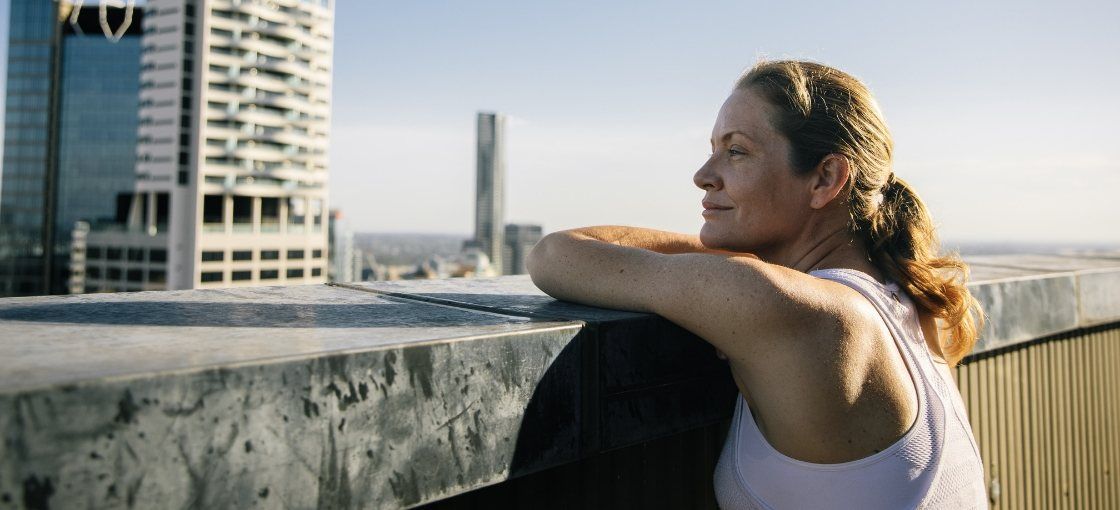Your support helps women fight breast cancer

You are helping to make cancer history
On any given day in Australia, 53 women* will have their worlds turned upside down when they hear the words ‘You have breast cancer’. And eight women* will tragically lose their fight against the disease.
Elizabeth’s story
These women are our mothers, daughters, sisters and friends. Just like Elizabeth—who was a fit, active, 45 year old working mother of two when she noticed a lump in her breast during a routine weekly self-check.
It was October 2017, and Elizabeth’s GP found at least 15 in the other breast. Her radiology appointment was longer than most with more than 100 images recorded. The news at this point was almost definitely breast cancer but the extent wouldn’t be known until a biopsy was done.
For someone with a needle phobia, the journey was beginning to look like a nightmare. But Elizabeth steeled herself because it just had to be done. That first biopsy led to the need for many more.
“I stopped counting after 20 biopsies were taken of the lumps because there were so many more to come,” Elizabeth said.
Mater Breast Surgeon Dr Emma Clarkson discussed the options with Elizabeth who decided on a double mastectomy.
“I am adopted, so I have no idea about my medical history and whether this was hereditary or not. But I just knew the surgery had to be done,” she said.
In less than eight weeks after feeling the first lump in her breast, Elizabeth had her surgery on 22 December 2017. And was home by Christmas Eve.
“I had no time to process anything and was acting purely in survival mode,” Elizabeth said.
“Even though I was in shock from everything, I knew I had to think about moving forward and rebuilding,” she said.
But moving forward isn’t easy to do, particularly with the knowledge that up to 30 per cent^ of patients have their cancer recur or spread to other parts of the body after treatment.
Mater Research
The complexity of emotions patients who have just completed treatment feel is not lost on Dr Patricia Carreira at Mater Research. She’s investigating how breast cancer metastasises (spreads). And also how this could be used to improve breast cancer treatment and survival rates.
“You go through the treatment, and you know you have a risk of that cancer coming back… that is painful. That is horrible.” says Dr Carreira.
Her team’s research centres on exploring the activity of mobile DNA, or ‘jumping genes’—repetitive sequences that are able to copy themselves to new locations in the genome. Jumping genes are more active in more aggressive tumours. And the more aggressive the cancer, the more likely it is to spread.
The project aims to understand how these jumping genes affect cancer progression. And also whether they can be used to identify which cancers are going to metastasise. Dr Carreira is also examining whether it is possible to control the spread of cancer by controlling mobile DNA elements within the cancer.
The outcome of this research has the potential to give doctors a better understanding of their patient’s specific cancer risk. This will then result in more personalised treatment, and ultimately—saving more lives.
“That is every researchers dream. You always dream that you are going to make that discovery that saves someone else’s life,” says Dr Carriera.
How you can help
Your support of the Mater Cars for Cancer lottery helps to drive vital medical research to give mothers, daughters, sisters and friends like Elizabeth the chance to receive personalised, targeted treatment. Purchase your tickets today.
*Australian Institute of Health and Welfare, 2019
^ Metastatic Breast Cancer Network
Our latest articles about:
